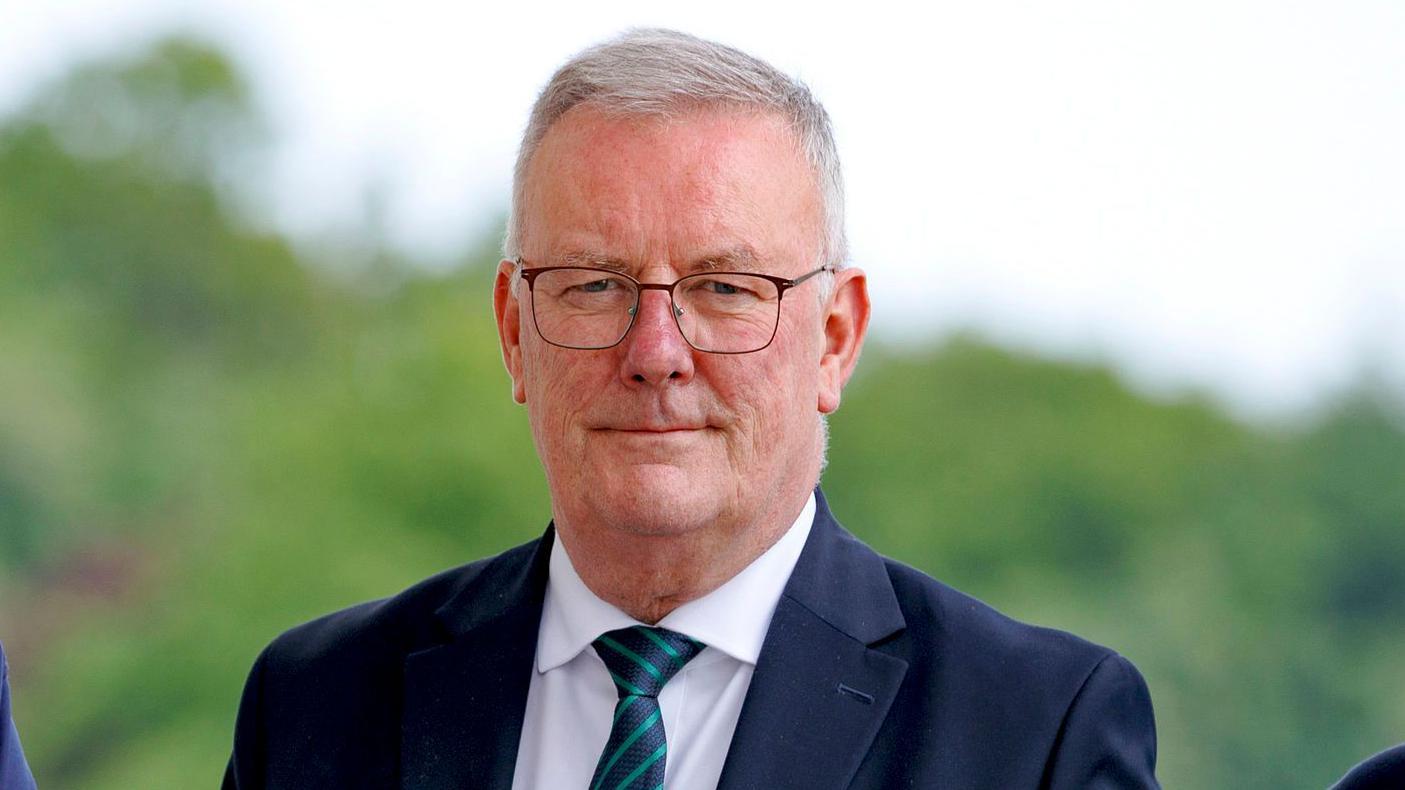To prevent an annual funding shortfall of several hundred million pounds, a complete overhaul of Northern Ireland’s health care system is necessary, according to the newly appointed permanent secretary at the Department of Health.
Mike Farrar stated that he had “all reasons to think” Northern Ireland’s health and social care system “has the potential to be outstanding,” yet he also mentioned that considerable obstacles exist.
Currently, there is a £600 million shortfall in the health budget, with one-third allocated towards the yearly pay increase.
On Wednesday, Health Minister Mike Nesbitt stated that his department might exceed its budget due to increasing financial challenges.

The funds for the payment agreement have not been secured yet, but Nesbitt has instructed finance officials through a ministerial directive to release the financing regardless.
Nesbitt stated that he would exert every effort possible to reach a “balanced budget.”
He stated in a written statement, ‘I don’t think we should consider excessive spending as unavoidable.’
The risk may be mitigated by combining several elements such as year-round extra funding, high-level executive focus, and an ongoing effort by the Health and Social Care system to achieve cost savings and operational efficiencies.
I want to reassure everyone here that I am committed to implementing measures to close the anticipated budget gap. It is important for members of this chamber to understand that they cannot have contradictory expectations – urging me to find savings while simultaneously insisting on increased expenditures across various sectors every day.
He stated that failing to keep salary equality between healthcare professionals in Northern Ireland and those in Great Britain would inevitably result in strikes, which would consequently detract from efforts aimed at addressing waiting lists and implementing reforms.
“To put it briefly, the possibility of exceeding the budget needs to be weighed against the major risks to service delivery,” he said additionally.
Waiting lists
Before the Department of Health (DoH) released an implementation plan for the elective care framework, Mr. Farrar stated that all options remain possible regarding cost-cutting strategies.
“They primarily revolve around the funds at our disposal and the issue of wait times for receiving care — that’s the major concern, as far as I can tell,” he stated.
The DoH is “committed” to reducing waiting times so that people are not harmed,” he further stated.
In March 2025, Nesbitt
mentioned there would be a “mixed approach to deliveries” to start addressing Northern Ireland’s hospital waiting lists.
The DoH is anticipated to release “comprehensive plans and evaluations regarding the financial stresses for this year along with the steps required in both the near and intermediate future” over the next few weeks.
Ensuring accountability from health trusts
Following a
sequence of significant construction problems
In the Belfast Health Trust, Mr. Farrar stated that each trust should assume greater accountability and accept responsibility when errors occur.
“There isn’t any justification for us to accept that these major capital initiatives should continue slipping as they have been,” he stated.
Mr. Farrar additionally mentioned that the atmosphere within the clinical teams at the trust needed transformation.
This comes after an internal investigation into the culture within the cardiology department at the Royal Victoria Hospital, which was initiated by the health minister.
has characterized as “horrible” and “completely unacceptable.”
Mr. Farrar stated that the accountability rests with the leaders of the trust, emphasizing that he expects them primarily to address this issue.
The high-ranking public official stated that he would provide them with room for correction and also mentioned that he would hold them responsible.
Eventually, if we fail to achieve the desired progress… the special measures regime will be implemented.
In April, Mr. Farrar, a previous high-ranking official within the NHS in England, assumed an interim position, stepping into the role vacated by Peter May, who has now retired from the Northern Ireland Civil Service.
Mr. Farrar formerly served as the CEO of the NHS Confederation and led primary care initiatives at the Department of Health in London.
He has previously held positions as chief executive for healthcare organizations in North West England, Yorkshire, and Tees.
Recently, he has been working as a management consultant with expertise in healthcare.
In Northern Ireland, he has collaborated with leaders of the health services and has likewise engaged in international work related to healthcare in regions such as the Middle East, Japan, Russia, the United States, Spain, and Australia.
- Heart Surgeons’ Behavior Called ‘Appalling’ by Minister
- Signed-off compensation payments for healthcare employees finalized by the minister
- Reimbursement for cross-border surgeries aimed at tackling waitlists
- A ‘blend of delivery’ to address NI waitlists





